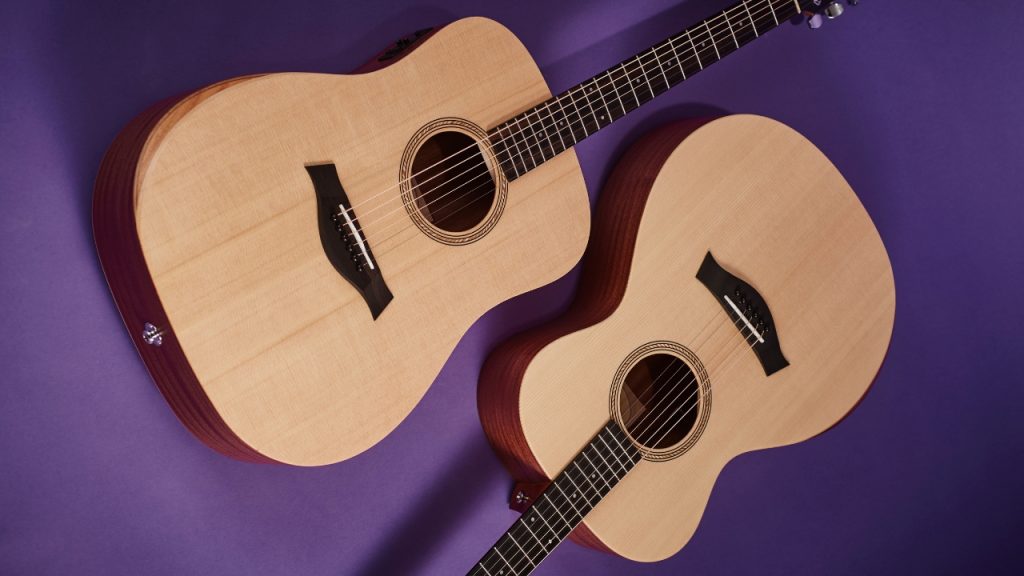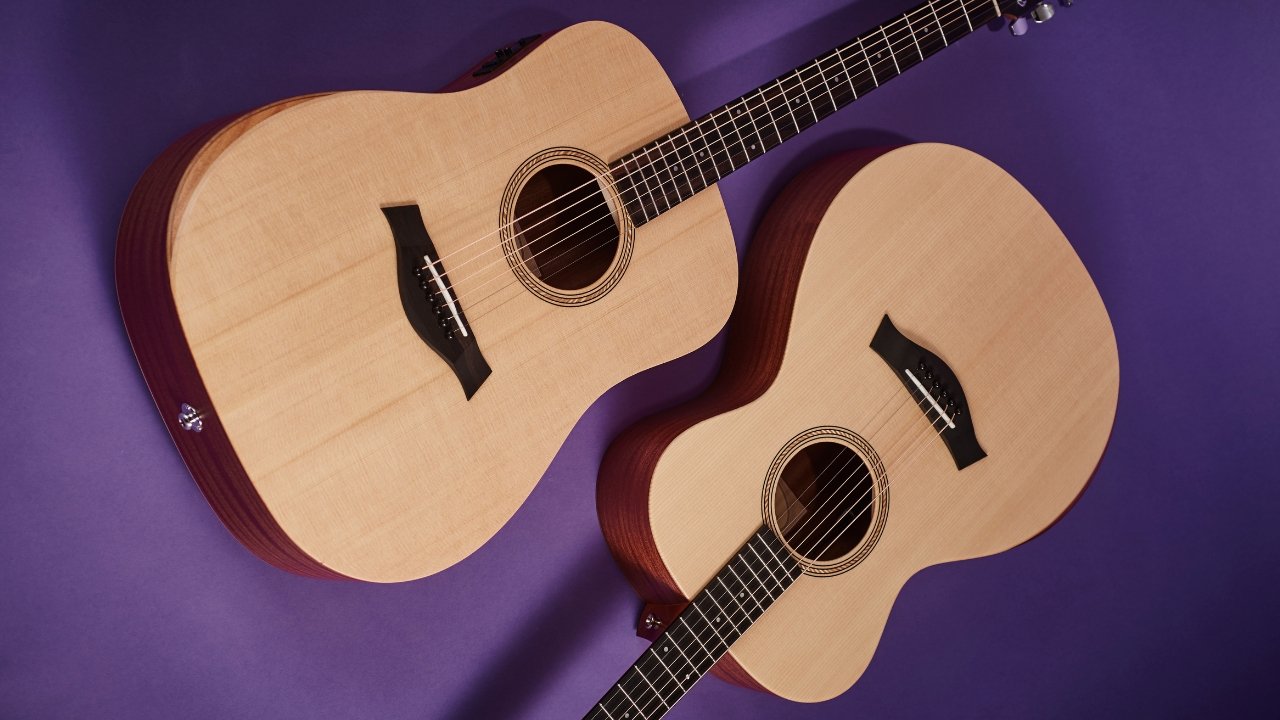Learning how to play the guitar can be one of the most rewarding and fulfilling experiences, especially for beginners eager to start their musical journey. But, choosing the right instrument is crucial to ensure you don’t get discouraged early on. The recommended beginner guitar is essential for any aspiring guitarist. It offers ease of play, durability, and sound quality without the overwhelming complexity that advanced guitars might bring.
In this guide, we’ll explore the best recommended beginner guitars, factors to consider when purchasing your first guitar, and tips on how to make the most of your guitar learning experience.
Explore
- 0.1 What Makes a Guitar “Beginner-Friendly”?
- 0.2 Types of Guitars for Beginners: Acoustic vs. Electric
- 0.3 Key Features to Look for in a Recommended Beginner Guitar
- 0.4 Top Recommended Beginner Acoustic Guitars
- 1 Top Recommended Beginner Electric Guitars
What Makes a Guitar “Beginner-Friendly”?

A recommended beginner guitar typically has several features that make it suitable for new players. These guitars are designed to be more forgiving in terms of playability, tone, and comfort. Here are some factors that make a guitar ideal for beginners:
- Neck and Body Size: A smaller, lighter guitar can be easier to handle for beginners, especially younger players or those with smaller hands.
- String Action: The action of the strings, or the distance between the strings and the fretboard, should be low enough to allow for easier pressing without excessive force.
- Sound Quality: While a beginner guitar doesn’t need to have the most sophisticated sound, it should still produce a clean, pleasant tone to keep the player motivated.
- Durability and Build Quality: Beginner guitars should be sturdy and well-constructed, with materials that will withstand the wear and tear of learning.
By focusing on these elements, the recommended beginner guitar will ensure a smooth and enjoyable learning process.
Types of Guitars for Beginners: Acoustic vs. Electric
Before diving into specific models of recommended beginner guitars, it’s essential to understand the two main types of guitars: acoustic and electric.
Acoustic Guitars
Acoustic guitars are the most common choice for beginners, especially those who want to learn fingerpicking or classic strumming techniques. These guitars have a natural sound that doesn’t require an amplifier to play. They are typically more affordable and simpler to start with.
Advantages:
- No need for an amplifier.
- Excellent for learning basic chords and strumming.
- Simple to carry and store.
Disadvantages:
- String tension can be harder to handle, especially for those with smaller hands.
- Limited sound customization compared to electric guitars.
Electric Guitars
Electric guitars require an amplifier to produce sound, but they offer more versatility in terms of tone. Many beginners are drawn to electric guitars due to their lighter string tension and the wide variety of sounds they can create.
Advantages:
- Easier string action and lighter tension.
- Versatility in tone, allowing you to experiment with various styles.
- Typically more comfortable for beginners in terms of finger pressure.
Disadvantages:
- Requires additional gear, like an amplifier.
- Can be more expensive than entry-level acoustic guitars.
Key Features to Look for in a Recommended Beginner Guitar
When searching for the recommended beginner guitar, several key features should be considered. These features will help ensure your guitar suits your learning style and provides the best start on your musical journey.
1. Comfortable Playability
A guitar that’s easy to play will encourage beginners to keep practicing. Look for a guitar with smooth fretwork, low action, and a comfortable neck profile. Guitars that are too large or too heavy can make learning difficult, so finding the right size for your body type is essential.
2. Build Quality and Materials
Guitars made from quality materials will not only last longer but also provide a better tone. Look for a guitar with a solid top (for acoustic models), or quality woods like mahogany or alder for electric guitars. The quality of the craftsmanship will also affect your experience, so choose a guitar from a reputable brand.
3. Affordability
As a beginner, it’s essential not to overspend on your first guitar. There are many budget-friendly recommended beginner guitars that offer great value for money. Look for guitars that provide quality at a reasonable price, so you don’t have to make a huge investment before you’re sure about your commitment to learning.
4. Sound Quality
While beginners might not be able to distinguish subtle tonal differences, it’s still important to choose a guitar that produces a pleasant sound. Acoustic guitars should have a clear, rich tone, while electric guitars should have clean, distortion-free sound when played through an amplifier.
5. Versatility
A versatile guitar allows you to explore different genres and styles as you progress in your guitar playing. Some guitars are designed for specific genres, while others, especially electric guitars, offer a range of sounds and tones suitable for rock, blues, pop, and more.
Top Recommended Beginner Acoustic Guitars
If you decide to go with an acoustic guitar, here are some of the best recommended beginner guitars to consider:
Yamaha FG800
The Yamaha FG800 is one of the most popular beginner acoustic guitars due to its great sound and build quality at an affordable price. It features a solid spruce top, which produces a warm, balanced tone perfect for beginners. The FG800 is lightweight, comfortable to play, and highly durable, making it an excellent choice for those just starting.
Fender FA-100
The Fender FA-100 is another highly recommended beginner acoustic guitar that provides great value for the price. It has a dreadnought body style, offering full, resonant sound. The easy playability and sturdy construction ensure a positive learning experience for beginners.
Epiphone DR-100
The Epiphone DR-100 is an excellent entry-level acoustic guitar known for its great sound and affordable price. The guitar’s slim neck and solid build make it easy to play, while its full-bodied tone will keep you motivated throughout your learning process.
Top Recommended Beginner Electric Guitars
For those considering an electric guitar, here are a few recommended beginner guitars to explore:
Squier by Fender Affinity Stratocaster
The Squier Affinity Stratocaster is a beginner-friendly electric guitar that offers incredible versatility. It has a comfortable, lightweight body and a slim neck, making it easy for new players to handle. Its three single-coil pickups allow for a wide variety of tones, making it a perfect choice for players interested in rock, blues, or pop.
Yamaha Pacifica 112V
The Yamaha Pacifica 112V is a high-quality, affordable electric guitar that offers incredible value for beginners. Known for its versatile sound and excellent build quality, it’s perfect for learning a wide range of styles. The guitar’s smooth neck and balanced tone make it an excellent choice for new electric guitarists.
Ibanez GRX70QA
The Ibanez GRX70QA is another fantastic choice for beginners looking for an electric guitar. It features a sleek design, comfortable playability, and high-quality pickups that deliver a clear, rich sound. Its versatility and ease of use make it an ideal option for any beginner guitarist.
Tips for Getting Started with Your Recommended Beginner Guitar
Now that you’ve chosen your recommended beginner guitar, here are some essential tips to help you start playing and progressing quickly:
1. Start with the Basics
Before diving into songs, it’s important to learn the basic chords and techniques. Practice strumming, tuning your guitar, and transitioning between chords to develop a strong foundation.
2. Consistency is Key
Practice regularly, even if it’s just for 15 to 30 minutes a day. Consistent practice will help you improve faster and make playing feel more natural.
3. Learn Songs You Love
While it’s important to practice scales and basic techniques, learning songs you enjoy will keep you motivated. Start with easy songs that use basic chords, and gradually move on to more complex tunes as you gain confidence.
4. Use Online Resources
There are plenty of free and paid resources available online, including tutorial videos, tabs, and courses. These can help you learn faster and more efficiently.
Final Thoughts on Choosing the Recommended Beginner Guitar
Selecting the recommended beginner guitar can significantly impact your learning experience. Whether you opt for an acoustic or electric guitar, make sure to choose a model that fits your needs, budget, and musical interests. A well-chosen beginner guitar will make learning fun, motivating, and enjoyable, helping you to stay committed to your musical journey.
With the right instrument and consistent practice, you’ll be strumming away in no time. Don’t hesitate to experiment with different styles, and most importantly, enjoy every moment of your guitar-playing adventure!
